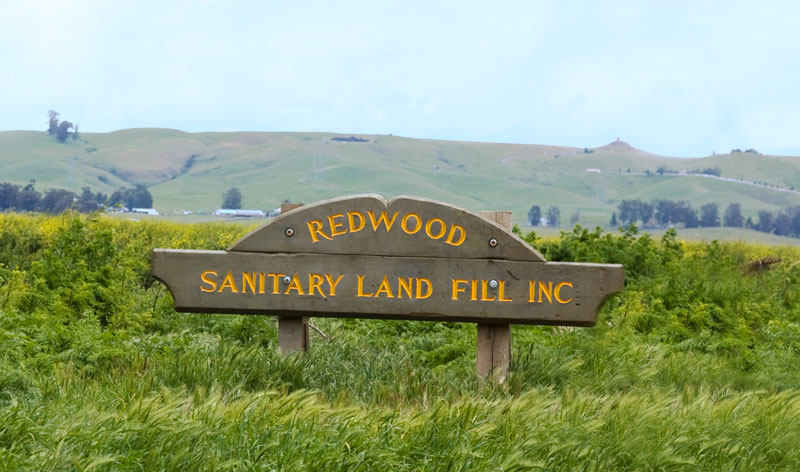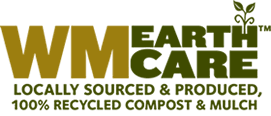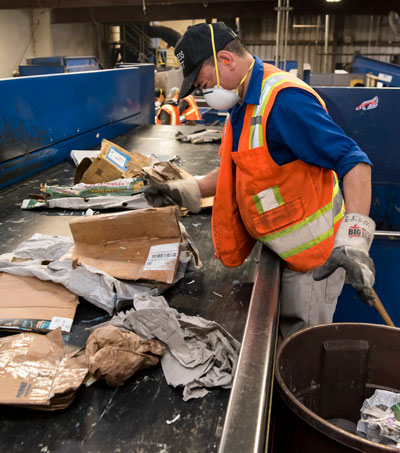When a business owner signs up for service, our customer support representative will review service and cart options to ensure the right fit for your business size.
If you have any questions or want to make changes to your service, please email us at
customer@millvalleyrefuse.com or call our office at
(415) 457-9760, Monday through Friday, between 7 a.m. and 3 p.m.
Service Levels
Service Rates include weekly garbage, recycling, and compost collection service. MVRS provides one garbage cart, one 64-gallon compost cart (or two 32-gallon compost carts), and an unlimited number of recycle carts upon request.
Cart & Container Options
GARBAGE OPTIONS
|
COMPOST OPTION
|
RECYCLING OPTIONS
|
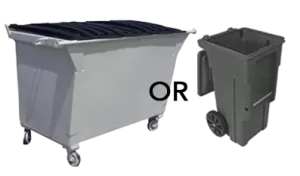 |
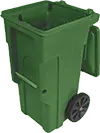 |
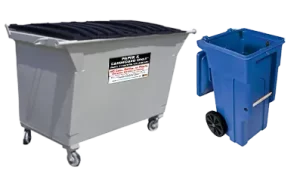 |
- 64-gallon gray cart
- 96-gallon gray cart
- 1-yard container
- 2-yard container
|
Why only one size? Compost gets heavy! We find it’s better to have multiple smaller carts than one big one for commercial compost. |
- 64-gallon gray cart
- 1-yard container for cardboard only
- 2-yard container for cardboard only
|
A Note About Your Mixed Recycling Cart Colors
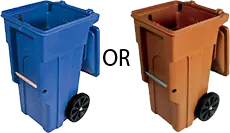
California is in the process of standardizing cart colors to make it easier to properly separate materials to recycle, compost, or landfill no matter where you are.
If you have an all BROWN cart (brown body, brown lid) for recycling, please continue to use it for recycling. As these brown carts become non-serviceable, we will replace them with the new standardized all BLUE carts.
New commercial customers receive all BLUE carts for recycling.
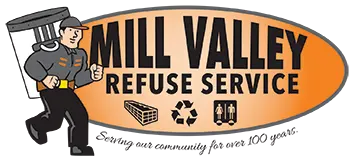

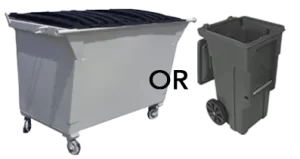


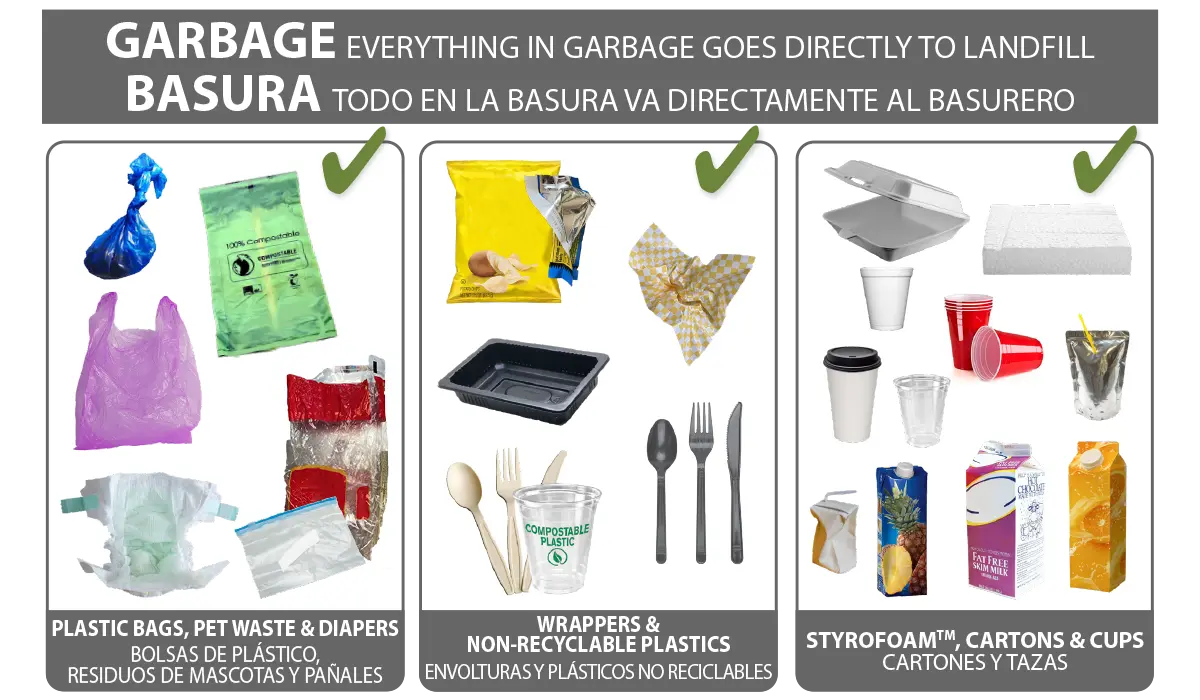

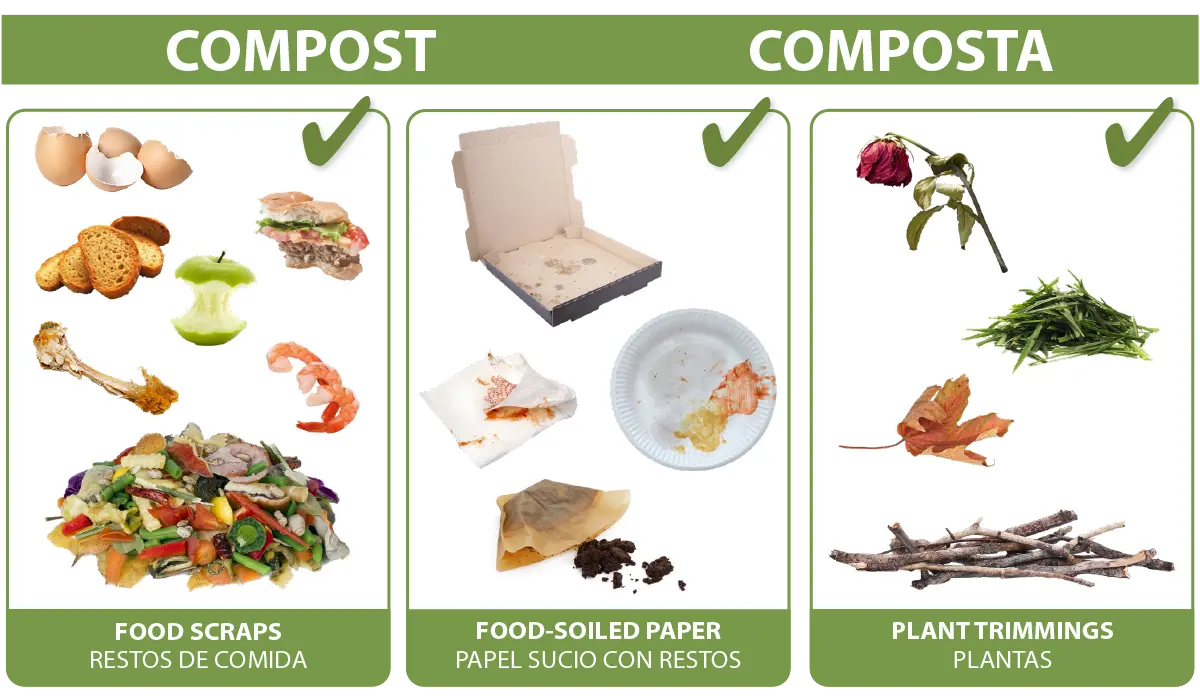

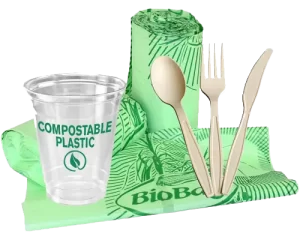
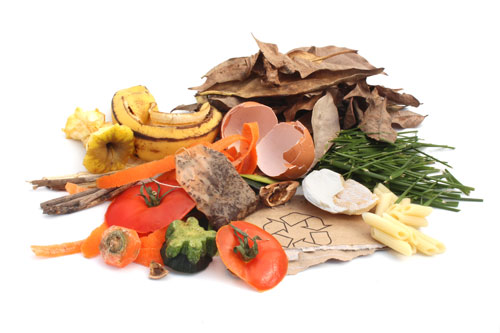
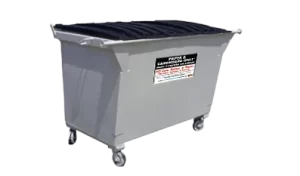
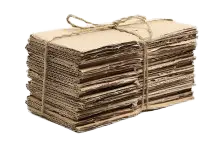 If your business or complex DOES NOT have a separate cardboard container, you may place cardboard in the mixed Recycle Cart. Flatten, but do not cut into small pieces. If cardboard does not fit in the cart, it must be packed in 2’x2’x2′ bundles or smaller and tied with twine or string. Set bundles next to cart on pickup day.
If your business or complex DOES NOT have a separate cardboard container, you may place cardboard in the mixed Recycle Cart. Flatten, but do not cut into small pieces. If cardboard does not fit in the cart, it must be packed in 2’x2’x2′ bundles or smaller and tied with twine or string. Set bundles next to cart on pickup day.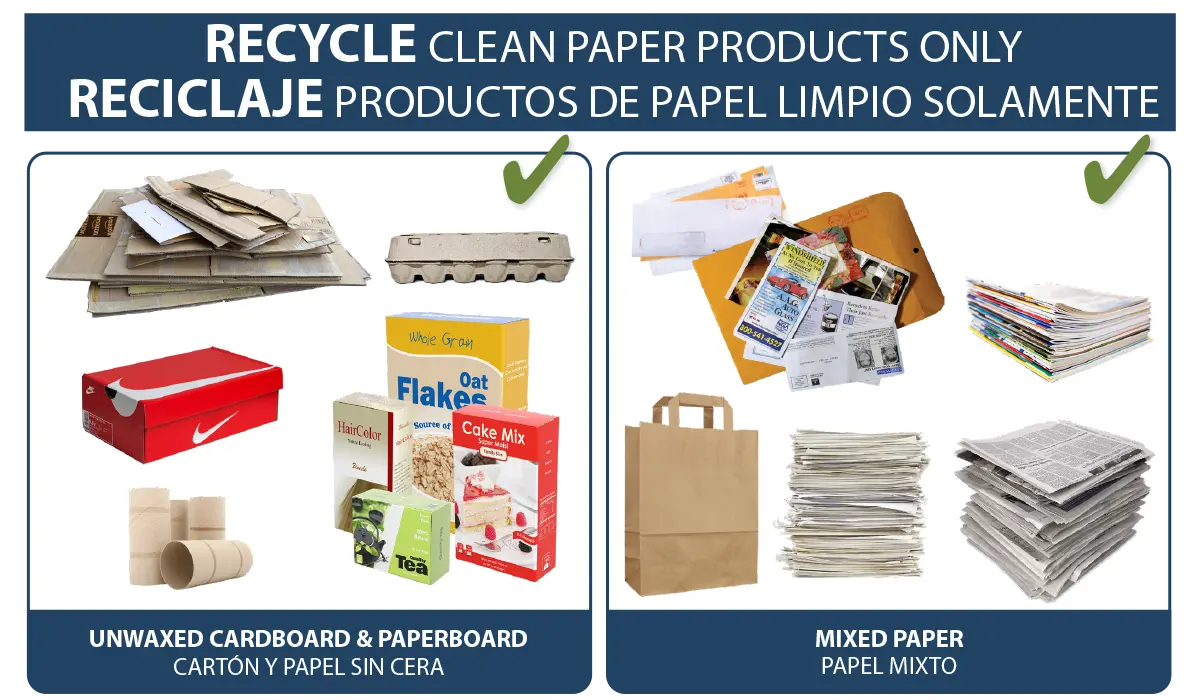
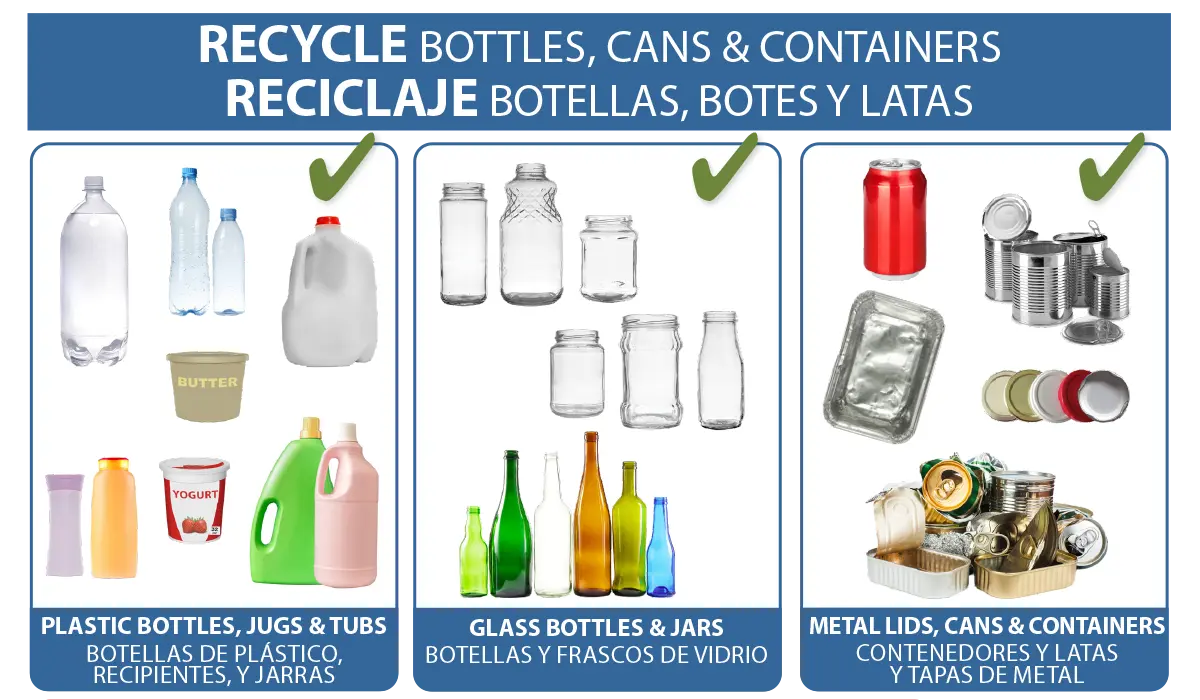


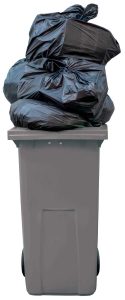 If your business is experiencing high volumes of garbage, recycling, and compost on the weekends, it may be time to add weekend collection service to your regular collection schedule. Additional fees apply.
If your business is experiencing high volumes of garbage, recycling, and compost on the weekends, it may be time to add weekend collection service to your regular collection schedule. Additional fees apply.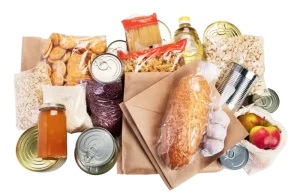 Food service businesses (any business; such as a restaurant, delicatessen, coffee house, or supermarket; that is engaged, at whole or in part, with the preparation and service of food to the public) produce larger volumes of food scraps and are likely to require more compost carts and perhaps a higher frequency of pickups. You might also be eligible to participate in the Food 2 Energy program. Please be sure to speak to one of our customer support representatives about options available to you.
Food service businesses (any business; such as a restaurant, delicatessen, coffee house, or supermarket; that is engaged, at whole or in part, with the preparation and service of food to the public) produce larger volumes of food scraps and are likely to require more compost carts and perhaps a higher frequency of pickups. You might also be eligible to participate in the Food 2 Energy program. Please be sure to speak to one of our customer support representatives about options available to you.